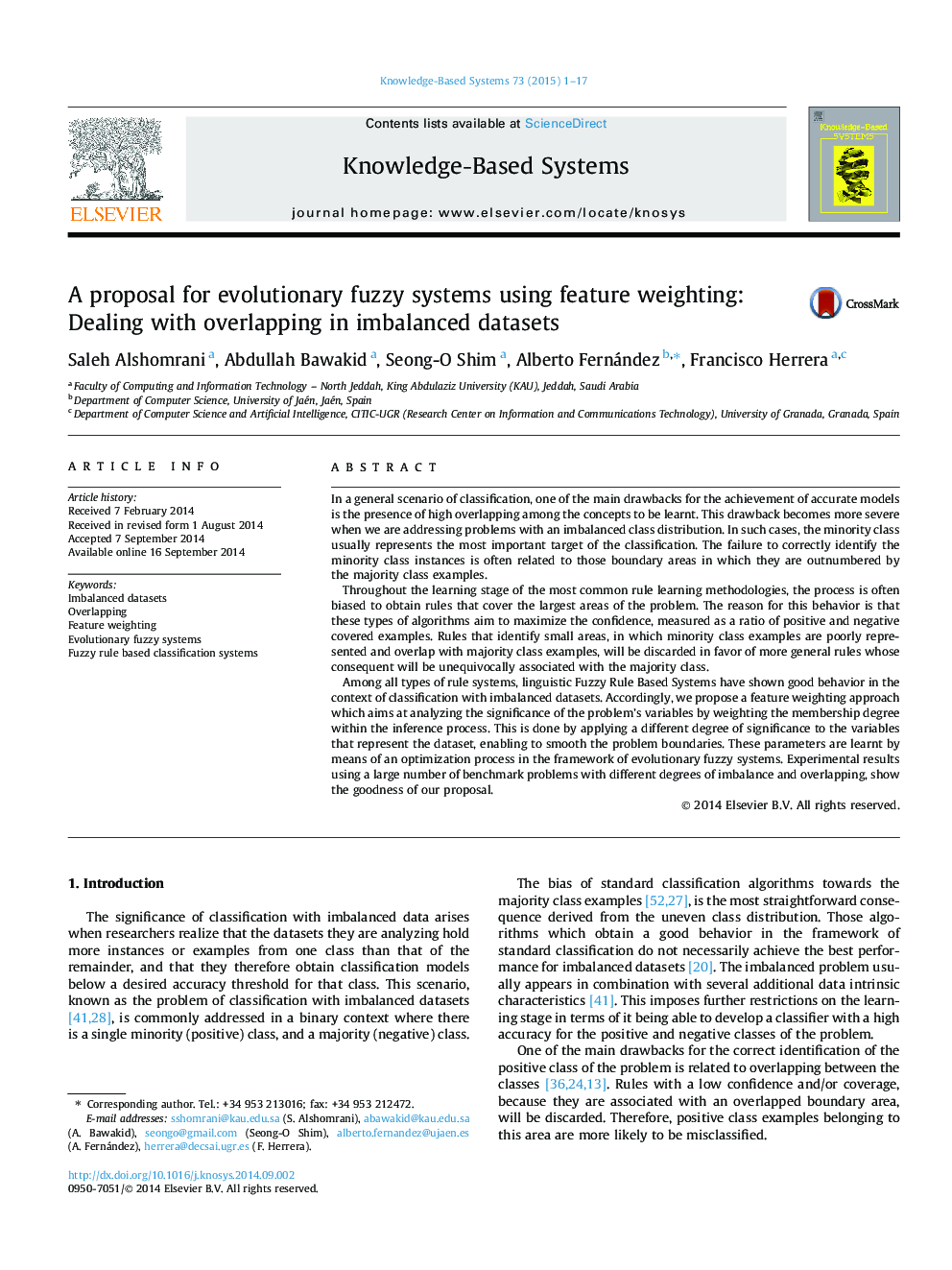| Article ID | Journal | Published Year | Pages | File Type |
|---|---|---|---|---|
| 404962 | Knowledge-Based Systems | 2015 | 17 Pages |
In a general scenario of classification, one of the main drawbacks for the achievement of accurate models is the presence of high overlapping among the concepts to be learnt. This drawback becomes more severe when we are addressing problems with an imbalanced class distribution. In such cases, the minority class usually represents the most important target of the classification. The failure to correctly identify the minority class instances is often related to those boundary areas in which they are outnumbered by the majority class examples.Throughout the learning stage of the most common rule learning methodologies, the process is often biased to obtain rules that cover the largest areas of the problem. The reason for this behavior is that these types of algorithms aim to maximize the confidence, measured as a ratio of positive and negative covered examples. Rules that identify small areas, in which minority class examples are poorly represented and overlap with majority class examples, will be discarded in favor of more general rules whose consequent will be unequivocally associated with the majority class.Among all types of rule systems, linguistic Fuzzy Rule Based Systems have shown good behavior in the context of classification with imbalanced datasets. Accordingly, we propose a feature weighting approach which aims at analyzing the significance of the problem’s variables by weighting the membership degree within the inference process. This is done by applying a different degree of significance to the variables that represent the dataset, enabling to smooth the problem boundaries. These parameters are learnt by means of an optimization process in the framework of evolutionary fuzzy systems. Experimental results using a large number of benchmark problems with different degrees of imbalance and overlapping, show the goodness of our proposal.
